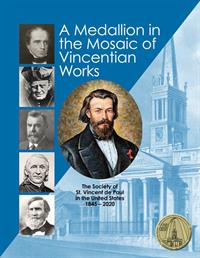Have you ever seen somebody, puffed up with himself, stride into a room, clearly expecting to be the center of attention? Sometimes we hear people mutter, “He thinks he’s God’s gift to us…”
It’s a shame that this expression is used as a derisive commentary on personal vanity, because, when you think about it, aren’t we all “God’s gifts?” That seems like an easy thing to understand when we refer to a newborn infant as a “gift from God.”
You, too, are “God’s gift” to your brothers and sisters. So am I. This is not a validation of our vanity — quite the opposite! In vanity, we make ourselves the center. By contrast, as God’s gift, I am not for me, I am for you. God is the center. He carefully created us, wrapped us, and sent us.
To be God’s gift, then, is a call not to vanity, but to our Vincentian virtue of humility in which we accept that “all that God gives us is for others and that we can achieve nothing of eternal value without His grace.” [Rule, Part I, 2.5.1]
Following Christ’s call to serve Him in the person of His poor, Vincentians seek to share not only our time, our talents, and our possessions, but also ourselves in a spirit of generosity. [Ibid]
And in giving, we receive.
As Fr. Hugh O’Donnell explains in an article titled Apostolic Reflection, “God is present in each person and in the community.”
In other words, while each of us is a unique creature of God, all of us together, as a group, also are a unique instance of God’s grace. The group does not change when a new person enters — it becomes an entirely new group, enriched by receiving another gift from God.
The vain man sees himself not only as the gift, but as the giver; the one who should be thanked. We are called to offer God’s gift, wrapped in humility, seeking nothing in return. Miraculously, when we do so, this gift of love will be multiplied.
What a wonderful exchange of gifts; what a wonderful celebration!
For we truly are the gifts when God is the Life of the party.
Contemplate
Are there times I try to keep this gift to myself?




